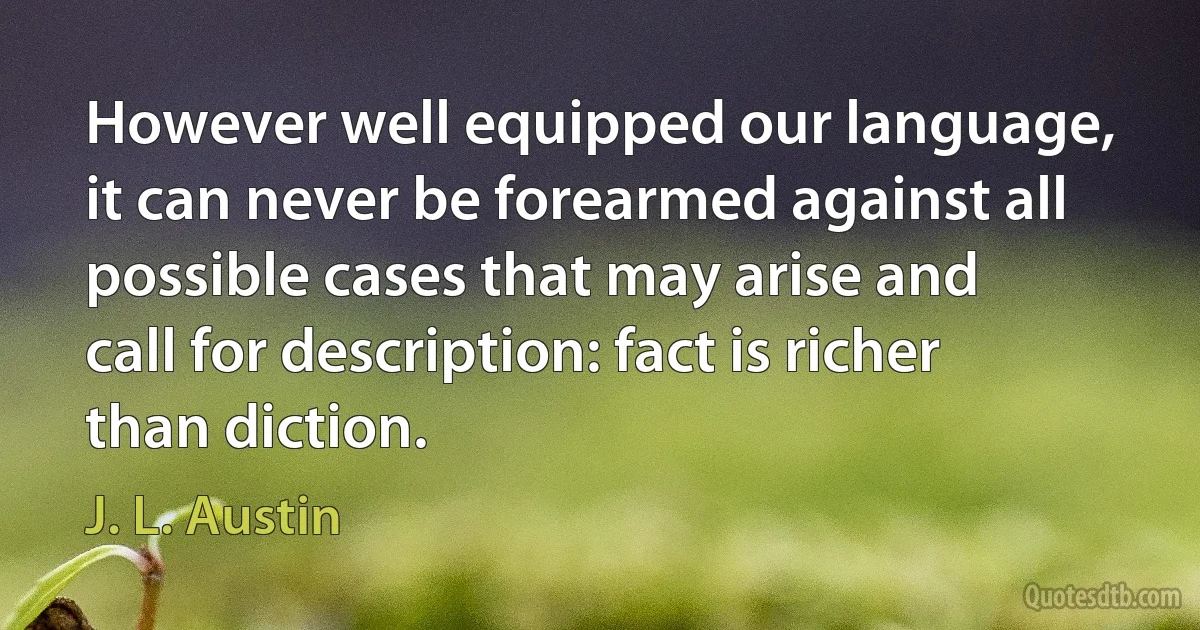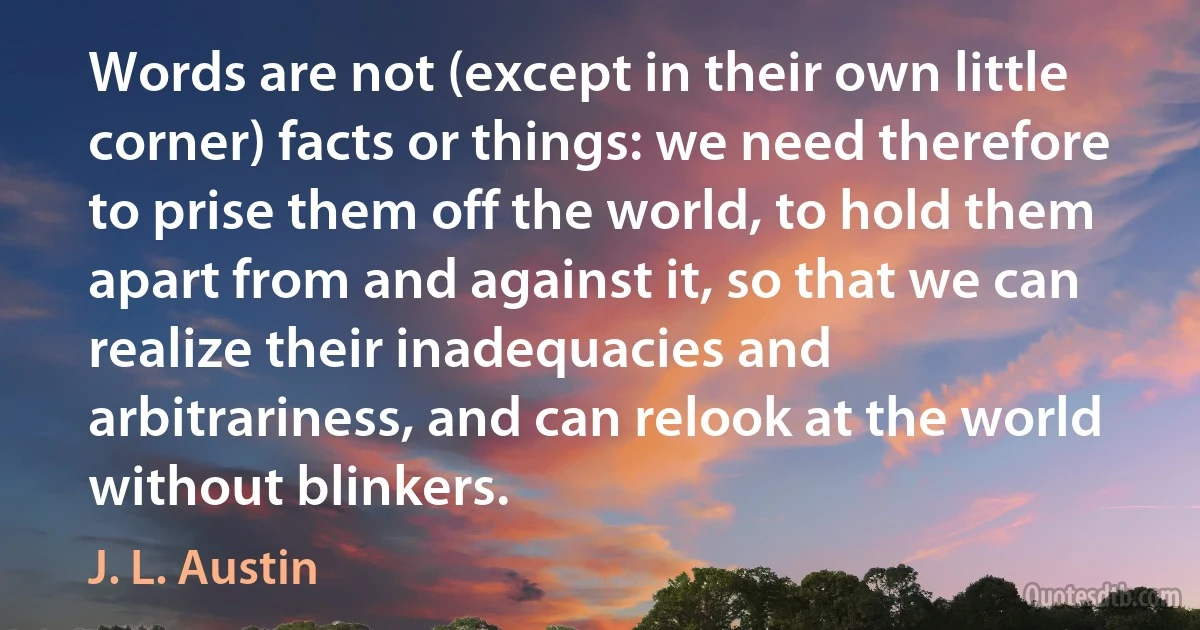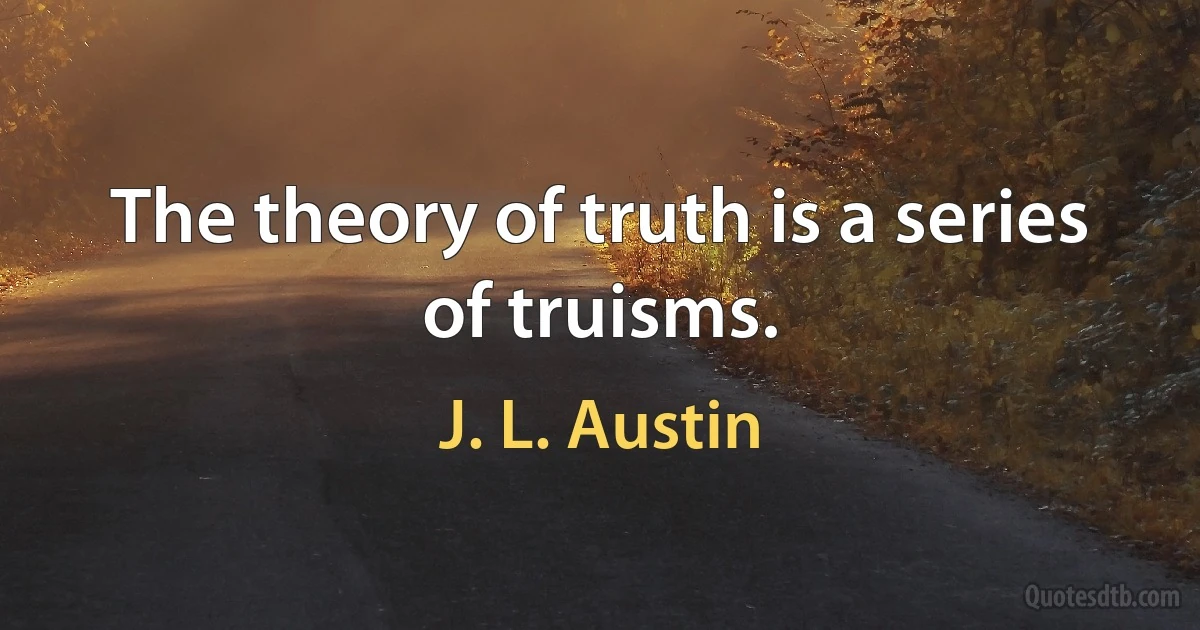J. L. Austin quotes
Going back into the history of a word, very often into Latin, we come back pretty commonly to pictures or models of how things happen or are done. These models may be fairly sophisticated and recent, as is perhaps the case with 'motive' or 'impulse', but one of the commonest and most primitive types of model is one which is apt to baffle us through its very naturalness and simplicity.

J. L. Austin



